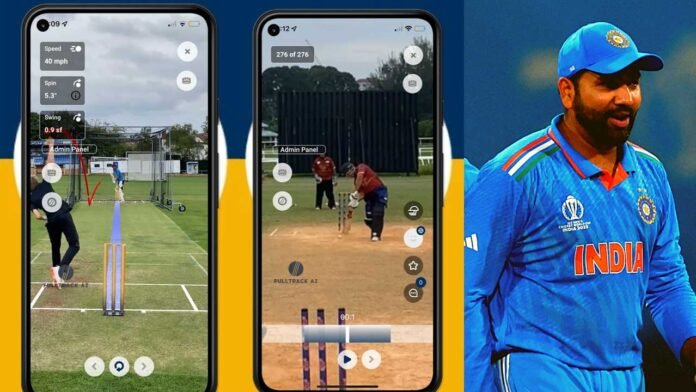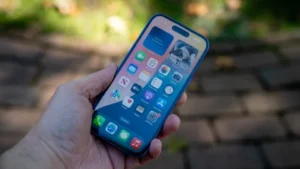The future of location-finding technology holds many opportunities and challenges. It will have a huge impact on our lifestyle. The currently available systems such as GPS, Wi-Fi, cellular networks, etc. are going to become more advanced in the future. Not only in outdoor locations, future location-finding technology is also going to facilitate indoor location tracking. Thus, it will be possible to get accurate directions in places like airports, shopping malls, metro stations, and buildings. This will help people reach their desired location without wasting time and with less effort.
Recently developed AR (Augmented Reality) and AI (Artificial Intelligence) based location services will take the user experience to a new level. In the future, we will be able to see roadways directly through smart glasses or AR lenses that are attached to our eyes. This will reduce human errors and reduce traffic problems. Especially while driving, it can be difficult to navigate by looking at a road map. However, future technology will show the route to the destination directly in front of the driver. This will greatly help in reducing accidents and controlling road accidents.
This technology is going to bring revolutionary changes in the transportation sector. Location tracking will be able to provide the best services to passengers in transportation systems like trains, buses, cabs, and metro. Currently, apps are available in some cities that tell where buses and metros are. This system will develop more advanced in the future. AI-based transport management systems will be able to accurately estimate travel times and suggest alternative routes based on congestion conditions.
Location-finding technology is also changing in the business sector in line with the increasing demand. Retail stores and shopping malls are using location data to analyze consumer behavior. In the future, as soon as you enter a shopping mall, you will be able to notify your mobile through a notification where your favorite products are available. Similarly, food delivery services will also be able to work faster and more accurately.
This technology is also going to become more crucial in terms of safety. Location finding technology is helping a lot in emergency services. Emergency response teams are able to identify the location of the accident in a very short time. In the future, it is going to work even faster and more accurately. As soon as an accident occurs, through smart systems based on AI, ambulances, fire engines, and police teams will be designed to automatically go to that location. Many lives will be saved through such efficient services.
Location tracking technology is also going to become crucial in the development of smart cities. It is having an impact in areas such as road congestion, parking problems, urban planning, and waste management. Already in some countries, public transport systems are being operated automatically through location finding technology. In the future, city roads will be connected to smart navigation systems and traffic will be controlled effectively. AI-based location systems will be developed so that traffic lights will automatically change based on the number of vehicles.
Regarding security, personal privacy protection is going to become a major issue in the future. Currently, many companies collect users' location data and use it for business purposes. However, in the future, new technologies are going to be developed that will allow users to control who can use their location data. Security can be improved through decentralized GPS systems and blockchain-based location services.
Location-finding technology is going to change completely in the future to make the human experience more convenient. As technology develops, humans will be able to obtain location information without having to use devices. Through technologies such as Brain-Computer Interface (BCI), which directly connects to the human brain, we will be able to identify the destination and follow the path through thought. Similarly, smart devices can tell us where to go and what to do through Neural AI Systems.
Moreover, in the future, new technologies such as solar-powered GPS devices, offline location finding systems that work without a data connection, live location tracking through smart drones will be developed. Especially, location finding technology is going to gain more importance in the most sensitive areas, security sectors, and the military sector.
In the current stage where the world is changing rapidly, location finding technology is going to become more modern, faster, and safer in the future. This knowledge, which will improve our way of life, is going to be of great benefit to society, the business sector, and government administration. It is possible that it will develop to an unimaginable level in the future.
As location-finding technology develops, it is affecting many areas. In the future, this technology is going to become faster, more accurate, and more efficient. Currently, we mostly use smartphones, GPS devices, and internet-based maps for navigation. However, in the future, this system is likely to go further and become fully automated.
Location-finding tools based on artificial intelligence (AI) will be able to understand our preferences and provide personalized suggestions. For example, if you often go to a certain restaurant, it can tell you the best time to go to that hotel based on your travel route and the level of congestion. Similarly, when you are new to a city, it can suggest places to see according to your interests and unique locations that are within a short distance.
Indoor location tracking systems are developing further, making navigation easier not only in outdoor spaces, but also in indoor spaces such as large malls, airports, stadiums, and hospitals. This is especially helpful for travelers and new patients in large hospitals and airports. In the future, these services may also be available through wearable technology, smart watches or AR glasses without the need for a smartphone.
Location-based services have also brought revolutionary changes in the transportation sector. Currently, tracking systems are available for trains, buses and cab services. But, in the future, AI-based traffic management systems will be developed to further improve their performance. These systems can analyze vehicle congestion and suggest the right route at the right time. This will not only reduce traffic problems and save people's time, but also help reduce fuel consumption.
Location-finding technology is playing a key role in the development of smart cities. It is being effectively used in sectors such as city planning, road management, parking systems and public transport. Smart signaling systems are being developed so that traffic lights automatically change based on the level of traffic on the roads. This will reduce unnecessary vehicle delays and improve punctuality.
Location technology is also gaining importance in terms of safety. It is going to become crucial in emergency services, security departments, and government administration. In the future, AI-based location finding systems will be able to quickly take relief measures when disasters such as fires, earthquakes, and floods occur. These systems will be useful in identifying the location of the accident and sending nearby rescue teams there.
This technology will also develop further in international travel. In the future, it is possible to obtain travel permits at airports with biometric and location-based identification without the need for a passport. AI-based navigation systems will be designed to know where travelers are in advance and provide them with the services they need.
Similarly, location finding technology is going to become more advanced in the future according to the human lifestyle. Until now, we have been getting location services through devices. But, in the future, it is possible that this will reach a point where location can be controlled through neural network technology that connects directly to the brain. As technology advances, security, speed, and accuracy will continue to improve. It is no exaggeration to say that this technology will be used more widely in the future.
Location-finding technology has the potential to completely change our lives in the future. So far, we have been using technologies like Google Maps, Apple Maps, GPS Tracking Systems. However, in the future, this technology has the potential to go further and reach a level where it works in accordance with our ideas. With new technologies like Artificial Intelligence (AI), Machine Learning (ML), Augmented Reality (AR), Virtual Reality (VR), and Quantum Computing, location services are going to become faster, more accurate, and more efficient.
In particular, AI-based location-finding tools can understand user behavior and provide personalized recommendations. For example, they can look at the route you frequently travel using a vehicle and suggest routes with less traffic for you. Also, they can recommend the nearest petrol station or EV charging station based on your vehicle's fuel level.
Furthermore, the possibilities of using location-finding technology in the healthcare sector are also expanding. In an emergency, when someone is in an accident or has a heart attack or stroke, an AI-based tracking system can assess their current location and provide information to the nearest hospital. In the future, Ambulance Services will also be designed to reach victims faster using this technology.
Indoor navigation systems are evolving. While GPS has so far mostly worked outdoors, in the future it can also provide accurate guidance in places like large buildings, metro stations, airports, hotels, and shopping malls. This will especially help new patients in large hospitals. Indoor navigation services will develop to tell them where to go and which doctor to consult.
Some large companies (Google, Apple, Microsoft, Amazon) are already developing AI & ML models specifically to improve location-based services. In the future, this technology is likely to be integrated by default in every smart device we use. For example, if you go to a new city, your smartphone or smartwatch can automatically suggest good places according to your interests.
This technology will also go further in terms of security in the future. Currently, we are able to track humans, vehicles, and packages through GPS tracking systems. But in the future, this system is likely to become more advanced and improve the safety of individuals through Real-Time Biometric Location Tracking. That is, technology will be developed that can identify and track the physical characteristics of a person wherever he is.
Similarly, location finding technology is also going to bring revolutionary changes in the military & defense sector. In the future, war plans are likely to be made entirely based on AI & GPS. Technology is being developed that can identify where soldiers are in minutes and provide necessary guidance. The security system will become stronger with technologies like Drone Surveillance, Satellite Imaging, Quantum GPS.
This technology is going to make further progress in the transportation sector. In the future, Self-Driving Cars i.e. Autonomous Vehicles will operate entirely on the basis of location technology. Vehicles will be able to predict traffic based on AI and decide the route without the need for a driver. This can bring forward the concept of Nayarayana (Zero-Accident Transportation System).
In the business sector, retail and e-commerce companies are also making extensive use of location tracking technology. In the future, when customers order any product online, they will be able to predict based on AI and know exactly when the product will be delivered. Companies like Amazon, Flipkart, Walmart are already making efforts to improve performance based on AI & GPS.
This technology is also going to become crucial in the smart city concept. In the future, all systems like traffic control, public transport management, parking management, garbage management in cities will be automatically controlled based on GPS & AI. This will enable efficient vehicle transportation and environmental protection in cities.
In terms of privacy, user data security is going to become a major issue in the future. As location-finding technology develops further, privacy issues related to it are also increasing. In the future, it is possible to further improve user privacy with Decentralized GPS Systems and Blockchain-Based Location Tracking technologies.
This technology is also going to become useful in terms of social services. During disasters, location-finding technology can quickly find out the current status of those caught in disasters such as earthquakes, storms, and floods and take relief measures. In the future, through real-time Disaster Management Systems, it is possible to carry out relief programs faster to save people's lives.
Location-finding technology has the power to completely change the way we live. The GPS, Wi-Fi positioning, Bluetooth tracking, and cellular network-based location services that we currently use are going to become more advanced in the future. This technology can bring revolutionary changes not only in personal life, but also in many fields such as business, healthcare, transportation, security, and government administration.
Location Tracking Technology in the Future
In the future, new technologies such as Quantum GPS are going to be developed. The current GPS system works through satellites on the globe. However, its accuracy sometimes has errors in remote areas or between buildings. Through quantum GPS, a system is being developed that can accurately identify every area on Earth with minute estimates. This will be especially useful for military, disaster relief, space exploration, and emergency medical services.
Indoor navigation system is also going to bring revolutionary changes in the future. Currently, GPS systems work outdoors, but it is difficult to provide accurate location services indoors, such as large malls, hospitals, airports, and metro stations. In the future, indoor navigation can be more accurate through AR (Augmented Reality) & AI (Artificial Intelligence) based location technology. For example, technology will be developed so that newly arrived passengers at the airport can see the correct route directly on the AR glasses or smartphone screen.
Personal Security & Privacy
As location tracking technology develops, privacy issues related to it are also increasing. Currently, large tech companies are collecting users' location data and using it for their business purposes. In the future, users have the opportunity to gain complete control over who can access their data through Decentralized Location Tracking Systems & Blockchain-Based GPS Systems.
AI-based anonymous location tracking technology is likely to be developed to increase security in terms of privacy. That is, systems will be developed that can process location information only without the user's exact address or personal details. This is especially useful in areas like child protection, anti-terrorism surveillance, and cybersecurity.
Artificial Intelligence & Location Finding
Location services are going to become more efficient based on AI & Machine Learning. This technology can understand our habits and give suggestions in advance. For example, if you go to the office at 8 am every day, the smart assistant (Google Assistant, Siri, Alexa) working on AI will tell you things like traffic information, which route is faster before that.
In the future, smart city systems working on AI & GPS will be developed. Through this,
- the public transport system can be automatically controlled – that is, buses, metro trains, traffic signals can all work based on AI by predicting traffic flow.
- Smart parking systems will be developed – that is, they will automatically identify a vacant parking space near your vehicle and provide guidance to get you there.
Autonomous Vehicles & Location Technology
Self-Driving Cars (Autonomous Vehicles) will be fully location-based in the future. Currently, companies like Tesla, Google Waymo, Uber are developing driverless cars based on AI + GPS. In the future,
- Vehicles will predict traffic and automatically choose a route with less traffic
- Analyze road conditions and detect hazards before reaching the destination**
- The vehicle will be able to navigate even in difficult terrain (indoor parking, tunnels, underground stations)
Location Finding in Medical & Emergency Services
Location Finding Technology is also going to play an important role in the medical field. In case of emergency,
- AI & GPS-based ambulances will be able to automatically reach emergency patients
- Telemedicine & remote medical services will be provided to people living in remote areas, and their location will be tracked through a satellite network and medical services will be provided.
- AI-based Smart Health Monitoring Systems are being developed, with which patients' life-threatening conditions will be identified early and information will be sent to the hospital.
Military & Defense Location Finding
Future location technology is going to become very crucial in the military sector.
- Drone Surveillance Systems – Drones that can monitor war zones are being developed based on AI & GPS.
- Underground Navigation – Quantum Navigation Systems, which are more advanced than GPS, are going to be developed to carry out secret military operations underground.
- Real-time tracking of where soldiers are – Exclusive **Wear








